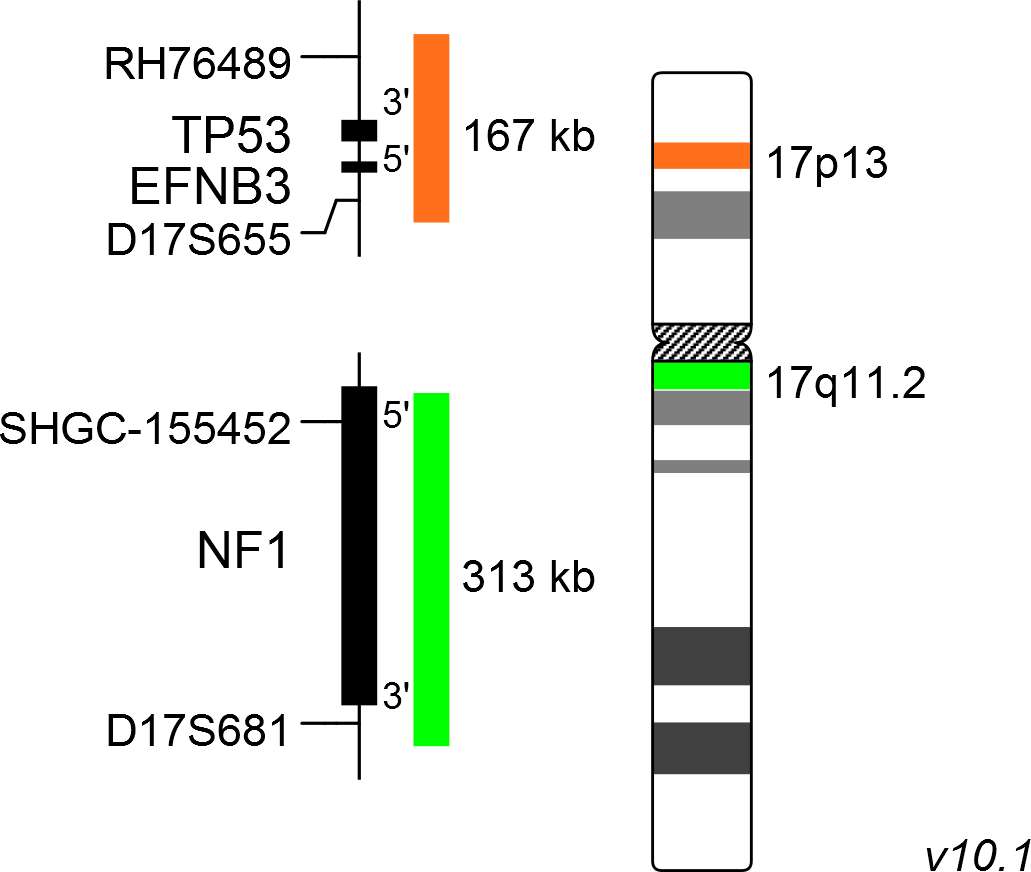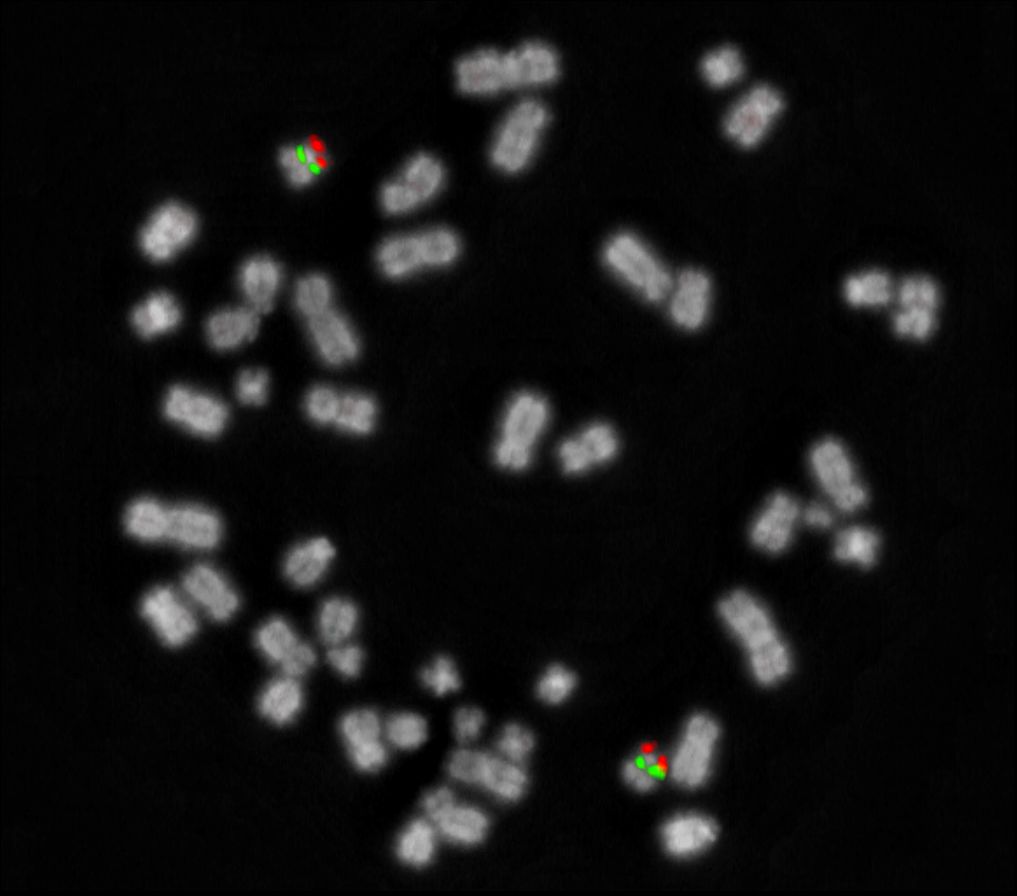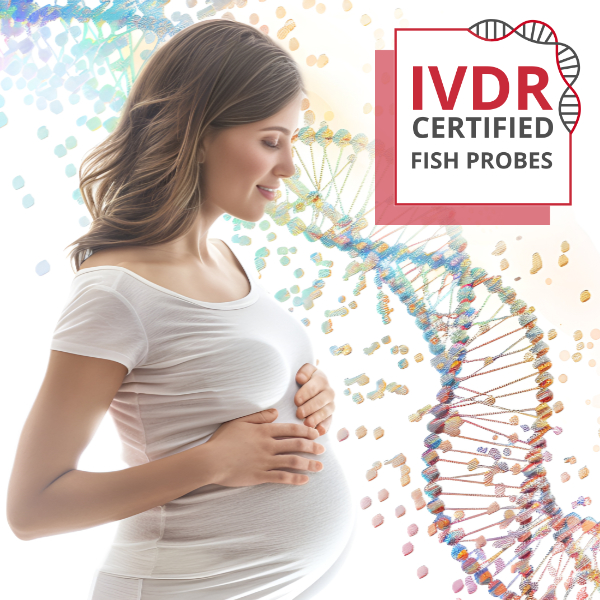
XL TP53/NF1
Deletion/Isochromosome Probe
- Order Number
- D-5089-100-OG
- Package Size
- 100 µl (10 Tests)
- Chromosome
- 1717
- Regulatory Status
- IVDD
IVDR Certification
This probe is IVDR-certified in compliance with the Regulation (EU) 2017/746 on in vitro diagnostic medical devices (IVDR).
MetaSystems Probes has already certified a wide range of FISH probes, according to IVDR.
This product remains IVDD-certified until further notice.

XL TP53/NF1 consists of an orange-labeled probe hybridizing to the TP53 gene region at 17p13 and a green-labeled probe hybridizing to the NF1 gene region at 17q11.2.
Probe maps for selected products have been updated. These updates ensure a consistent presentation of all gaps larger than 10 kb including adjustments to markers, genes, and related elements. This update does not affect the device characteristics or product composition. Please refer to the list to find out which products now include updated probe maps.
Probe map details are based on UCSC Genome Browser GRCh37/hg19, with map components not to scale.
TP53 is a tumor suppressor gene often described as the guardian of the genome. Deletions and/or mutations can be detected in a wide range of hematological neoplasms and are the most common genetic aberrations in human cancer. The neurofibromin 1 gene (NF1), located at 17q11.2, is a tumor suppressor gene negatively regulating the RAS signal transduction pathway. Germline-loss of function can cause neurofibromatosis type I, a congenital genetic disorder of the nervous system which usually appears during childhood. Somatic deletions of NF1 are detected in about 3.5-7% of de novo acute myeloid leukemia (AML) cases and are often associated with a complex aberrant karyotype. Mutations in the remaining NF1 allele are reported with varying frequency. NF1 deleted cells have a decreased sensitivity to Ara-C in cell culture studies.
FISH is a valuable tool for the detection of NF1 deletions which might be easily overlooked by conventional cytogenetics due to the small size of the aberration.
Clinical Applications
- Acute Myelogenous Leukemia (AML)
- Chronic Myelogenous Leukemia (CML)

Normal Cell:
Two green (2G) and two orange (2O) signals.

Aberrant Cell (typical results):
Two green (2G) and one orange (1O) signal resulting from loss of one orange signal.

Aberrant Cell (typical results):
One green (1G) and one orange (1O) signal resulting from loss of one green and one orange signal.

Aberrant Cell (typical results):
Three green (3G) and one orange (1O) signal resulting from the presence of an isochromosome.
- Haferlach et al (2012) Leukemia 26:834-839
- Boudry-Labis et al (2013) Am J Hematol 88:306-311
- Tessoulin et al (2017) Blood Rev:doi:org/10.1016/j.blre.2017.03.001
Certificate of Analysis (CoA)
or go to CoA Database




